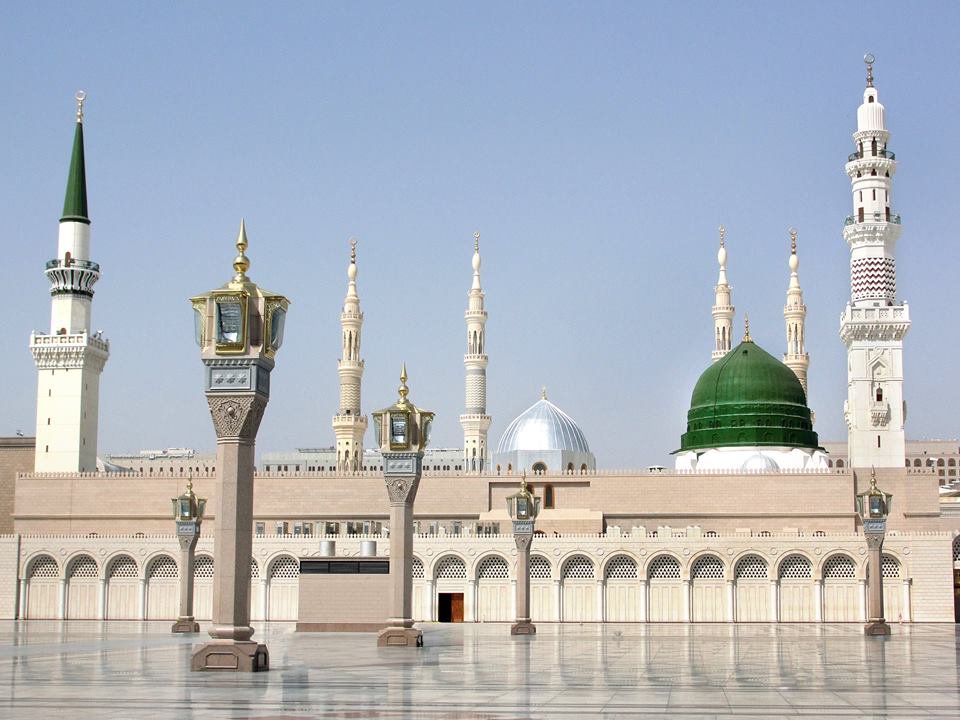The Most Beautiful Day of Madinah
Author: Mutlu Binici
Translation: Muhammed Enes Aykut
.
.
That day was the most beautiful day of Madinah and for the people of Madinah. As Enes b. Malik said, there was no more beautiful and more shining day that Madinah had ever seen before [1]. People were exclaiming ‘’Prophet has arrived!’’ as they were flooding onto the streets. Muhajirs (Muslims who immigrated from Mecca to Madinah at that time) were in tears due to the gladness of seeing Him once again, and those who saw him for the first time were in an undefinable pleasure.
Prophet Mohammad was moving on the streets while the Muslims were imploring him to accept their host and grace their houses. Yet, he neither rejected nor accepted them. Instead, He said ‘’Clear the way for the camel, it is notified where to stop.’’[2]
The Conqueror of Hearts
One of the meanings of the word of Conquest (فتح) is to open in Arabic. It is not by force, but with conquering the hearts. As for wealthy muslims, they had their houses inside of palm gardens, and they offered Prophet Muhammad to stay at. However, He kindly refused their generous offers because he had a different approach to worldly things compared to us and he also did not forget that worldly things were to be disappeared. Thus, he did not disappoint the miserable who were delighted by his presence and had no hope but Him. The prophet who conquered the hearts of people would not break a heart and gave his consent for where his camel kneeled, like everyone else did. 
The field they arrived was owned by two orphan brothers named Sehl and Suhayl who were the members of Beni Najjar (Family of Najjar). Soon the brothers were called there, and the field mentioned was purchased in order to build Masjid Al-Nabi. [3] First, they wanted to donate the property, but the offer was kindly refused by the Prophet. They were orphans and they were not to be harmed even though it was about a masjid construction. Consequently, he looked around and accepted the host of Halid b. Zeyd Ebu Eyyub Al-Ansari, who owned the nearest house there.
Enter Heaven with Peace
It was the time to say something to the crowd waiting for him. Harsh words could be said, promises of revenge could be given about the Meccan people, who first oppressed then exiled Muslims from Mecca and attempted to kill him. However, he definitely was not from those who lose their mind when they see the public and vow for unreachable, and he hesitated from deceiving. He was different. Here is what he said ‘’O People! Spread the greetings, feed (each other), strengthen the ties of kinship, and be on prayer while others are asleep, you will enter heaven with peace.’’ [6].
He could not be stopped by anyone, at least those who tried to stop were failed. One night in Mecca, Prophet’s (pbuh) house was surrounded by one warrior from each tribe [7]. Their intention was to kill. They could not find him there; however, instead they found Ali, his servant. By the time they got in, he had already gone.
Then the chase began. They were looking for him all the way on the desert. They followed his tracks to a cave, but at the entrance they could not find out he was there because there were spider nets and it was to be deformed to get in. Therefore, they decided that he was not in, but he was.
Only a prophet could voice these sincere words after such a challenging voyage in the desert
Spread the Greeting
Jewish intellectuals living in Madinah figured out his prophethood without even saying a word just by seeing his stance, while confessing that someone who has such a face would not ever lie. Then the words of prophethood came out of His mouth: ‘’I swear by Allah, you will not enter heaven unless you believe. As long as you don’t love each other, you will not be a believer. If I were to say something to make you love each other, spread the greeting amongst each other.’’ [8]
So, may the peace be upon each one of us. As-Salam Alaykum.
[1] İbn Sa’d, Tabakat, I, 233.
[2] İbn Hişam, es-Sire, I, 495.
[3] Belazuri, Fütuhu’l- Buldan, 5.
[4] İbn Sa’d, I, 236.
[5] Diyarbekri, Hamis, I, 385.
[6] İbn Sa’d, I, 235.
[7]Translator’s note: That was on purpose, those who planned this tried to prevent a tribal war which was widely common at that time.
[8] Müslim, İman, 93; Ebû Davûd, Edeb, 131.
